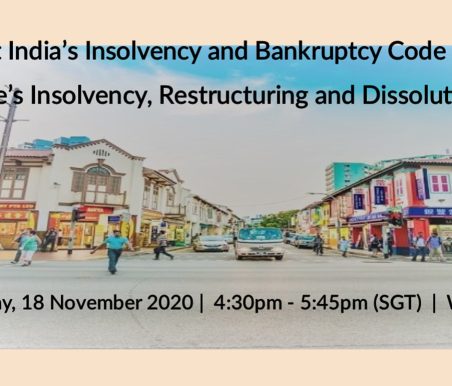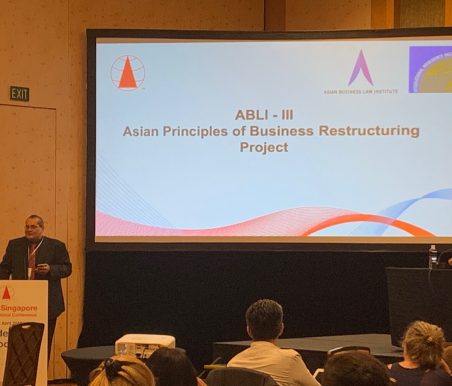The Court of First Instance of the High Court of Hong Kong Special Administrative Region (Hong Kong Court) has recently released, in Re Hong Kong Airlines Ltd. [2022] HKCFI 3792, its decision for sanctioning the scheme of arrangement (Scheme) proposed by Hong Kong Airlines (Company) under Hong Kong law.
Background
The Company proposed a plan to restructure its debts in late 2022 due to significant difficulties caused to its operations by the pandemic. At that time, the Company was already cash flow and balance sheet insolvent. As the Company’s liabilities comprised, among others, those governed by English law and those governed by Hong Kong law, parallel court proceedings were needed (and indeed commenced) before the English court and the Hong Kong Court. As the Gibbs Rule is followed by both jurisdictions, the proceedings before either Court will not comprise any debt governed by the law of the other jurisdiction. Further, the restructuring plan before the English court (proposed under English law) and the Scheme were, in essence, inter-conditional before the approval of both was a conditional precedent required by a new investor for providing fresh funds.
By the date of hearing before the Hong Kong Court, the English court had already sanctioned the restructuring plan put forward before it.
Principles for sanctioning a scheme in Hong Kong
The Hong Kong Court listed seven “well-established” principles which it will apply in considering whether to sanction a scheme. They are:
(a) whether the scheme is for a permissible purpose;
(b) whether creditors who were called on to vote as a single class had sufficiently similar legal rights such that they could consult together with a view to their common interest at a single meeting;
(c) whether the meeting was duly convened in accordance with the Hong Kong Court’s directions;
(d) whether creditors have been given sufficient information about the scheme to enable them to make an informed decision on whether or not to support it;
Five principles were listed in latter parts of the judgment to illustrate how this test should be applied.
(e) whether the necessary statutory majorities have been obtained;
(f) whether the Hong Kong Court is satisfied in the exercise of its discretion that an intelligent and honest man acting in accordance with his interests as a member of the class within which he voted might reasonably approve the scheme; and
(g) in an international case, whether there is sufficient connection between the scheme and Hong Kong, and whether the scheme is effective in other relevant jurisdictions.
Reasoning by the Hong Kong Court
Based on facts of the present case and the process by which the Scheme had been proposed, the Hong Kong Court was satisfied that the requirements listed in (a) to (e) above had been satisfied.
The Hong Kong Court went on to explain that despite those requirements being met, it still has the discretion in (f) to refuse to sanction the Scheme. However, the court “normally acts on the principle that businessmen are much better judges of what is to their commercial advantage than the court could be”. As there was evidence that creditors participating in the Scheme would receive a better return than in an insolvent liquidation of the Company, the Hong Kong Court was of the opinion that the Scheme was one that an intelligent and honest creditor could sensibly be expected to approve.
The Hong Kong Court then noted that the effectiveness of the Scheme was subject to several conditions (such as the new investor making good on its funding promise). Although the general principles are that “the court will always wish to ensure that it does not act in vain” and that “the court will be unlikely to sanction a scheme if the condition is one which gives a discretion to a third party as to whether or not they will take some step necessary to render the scheme effective”, it does not mean that “the court requires certainty that a condition will be satisfied”. Further, it is not surprising that a complex restructuring “contains components which have a degree of uncertainty attached to them”.
In the present case, the Hong Kong Court was satisfied that the conditions to which the Scheme was subjected did not represent any impediment to it sanctioning the Scheme. This is because:
(a) a number of those conditions are within the Company’s control;
(b) all relevant parties are committed to the successful implementation of the Scheme; and
(c) the Company does not expect any insuperable difficulties in terms of authorisations from the relevant governmental bodies.
International effectiveness
Turning to (g), the Hong Kong Court also addressed the issue of the Scheme’s effectiveness in other jurisdictions of “practical importance” because “it would not be a proper exercise of discretion to sanction a scheme that serves no purpose”.
It listed three considerations in determining whether a foreign jurisdiction can be said to have practical importance to a scheme sanctioned in Hong Kong, such as the material amount of debt to be compromised by the scheme that is governed by the law of a foreign jurisdiction. Based on facts of the present case, most of the Company’s debts are governed by Hong Kong law, and they are subject to the Scheme. Some debts are governed by English law, and they are subject to the restructuring plan already sanctioned by the English court. The Company also has remaining debts that are governed by the law of Mainland China. Since no holder of any Mainland law-governed debt has come forward to oppose either the Scheme or the UK restructuring plan, the Scheme is expected to be internationally effective. Further, the risk of adverse enforcement by any hold of the Mainland law-governed debts is remote due to the absence of any meaningful assets owned by the Company in the Mainland. The Hong Kong Court concluded that “a remote risk of adverse enforcement by creditors would not hamper the effectiveness of the Scheme”.
The full text of the judgment can be read here.
Whilst every effort has been made to ensure that the information contained in this post is correct, the Asian Business Law Institute disclaims all liability and responsibility for any error or omission in this post, and in respect of anything, or the consequences of anything, done or omitted to be done by any person in reliance, whether wholly or partially, upon the whole or any part of the contents of this post.


![[Interviews] The Indonesian Insights [Interviews] The Indonesian Insights](https://abli.asia/wp-content/uploads/elementor/thumbs/Interviews-The-Indonesian-Insights--r77ckurwi1on1rmggvqng1iv4jb4hsube0vcu33ogw.png)



